Existing User Log In
New User Registration
Register for a free account to gain full access to the VGChartz Network and join our thriving community.



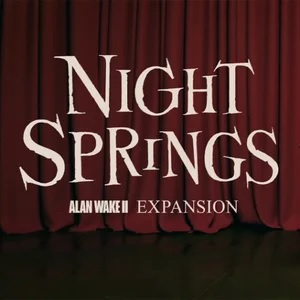

America - Front


America - Back

Remedy Entertainment
Action-Adventure
 (Add Date)
(Add Date) (Add Date)
(Add Date) (Add Date)
(Add Date)
| Owners: | 0 |
| Favorite: | 0 |
| Tracked: | 0 |
| Wishlist: | 0 |
| Now Playing: | 0 |
Reviewer's Note: If you're interested in VGChartz's review of Alan Wake II (the main game), click the link here.
Not only known for being watchable Twilight Zone spoofs scattered across Bright Falls, the "Night Springs" TV show is also treated as a launch pad for other Alan Wake stories. For long-time fans, this was first experienced in Alan Wake's American Nightmare, as though his descent into The Dark Place manifested old teleplays into reality. While an intriguing concept in its own right, the game proper lost its way with a recycled semi-open structure compared to the original’s fine-tuned rhythm. Alan Wake II's first expansion on the other hand, Night Springs, latches closer to its core design ethos and tone while sprinkling in a few surprises.
Three separate episodes starring three different characters in three distinct universes. The "Remedyverse" cemented in Control has now taken a full-fledged dive into what-if scenarios, with the enigmatic Warlin Door prefacing and closing each of them – a la Rod Serling. While these new dimensions of sight, sound, and mind are categorized as non-canon, like American Nightmare, who can really say what is or isn’t real? After all, does the one true story start and stop based on whether you're playing the main character? What does "main character" truly mean? Perhaps these answers can be found in… Night Springs. [Cue ominous background music]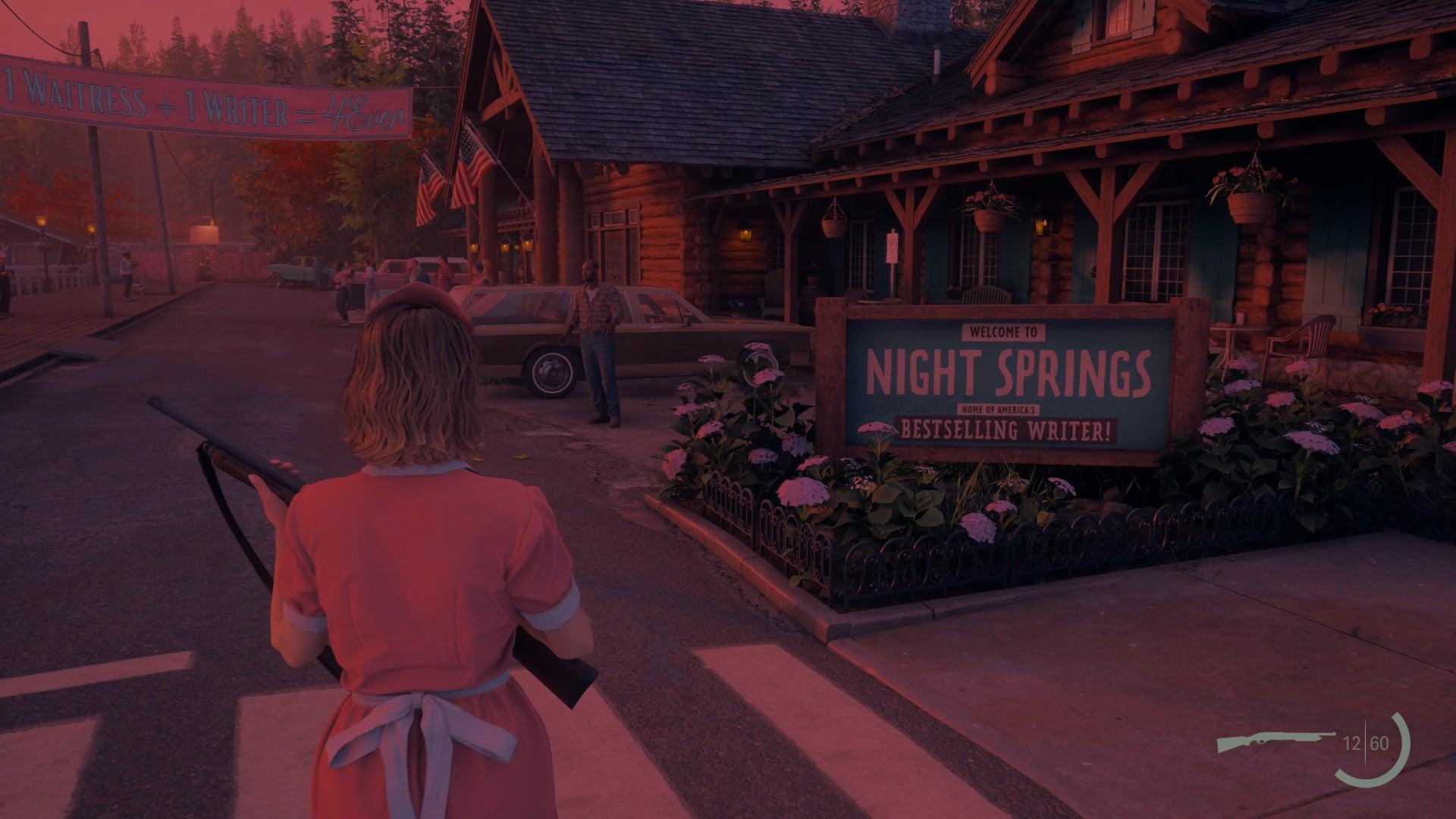
If I were to condense this expansion into a sentence it'd be this: parallel universe scenarios through recycled main game content.
In the first episode, Number One Fan, you're in the shoes of a different version of Oh Deer Diner’s Rose Marigold, who's set out to save her beloved Writer from his evil twin brother and the violent "haters" beset against him. What initially begins with this Rose waitressing and giving quaint life advice to patrons segues into a grindhouse splatter-fest against hordes of haters. From the subtle pink visual filter to Rose's silly commentary ("My gun is hungry."), the black comedic angle is immediately obvious.
A large part of this episode's charm stems from Rose’s cheery attitude and the ingrained meta-commentary involved within every interaction. The constant deluge of chiding remarks against not-Wake's writing by these violent enemies, from his heavy-handed metaphors to missed typos, feels like such a goofy contrast to Rose's high-pitched rebukes whilst dumping a fusillade of shotgun rounds. Even her own ramblings between fights are often disguised digs at her writer's overindulgence in tropes before saying "that man has more layers than a croissant!" Practically every line in this episode is so endearing. Even though the level design from the diner to the nearby nursing home is the same as before, the tweaks in tone and action vocabulary feel just fresh enough to work as a short diversion.
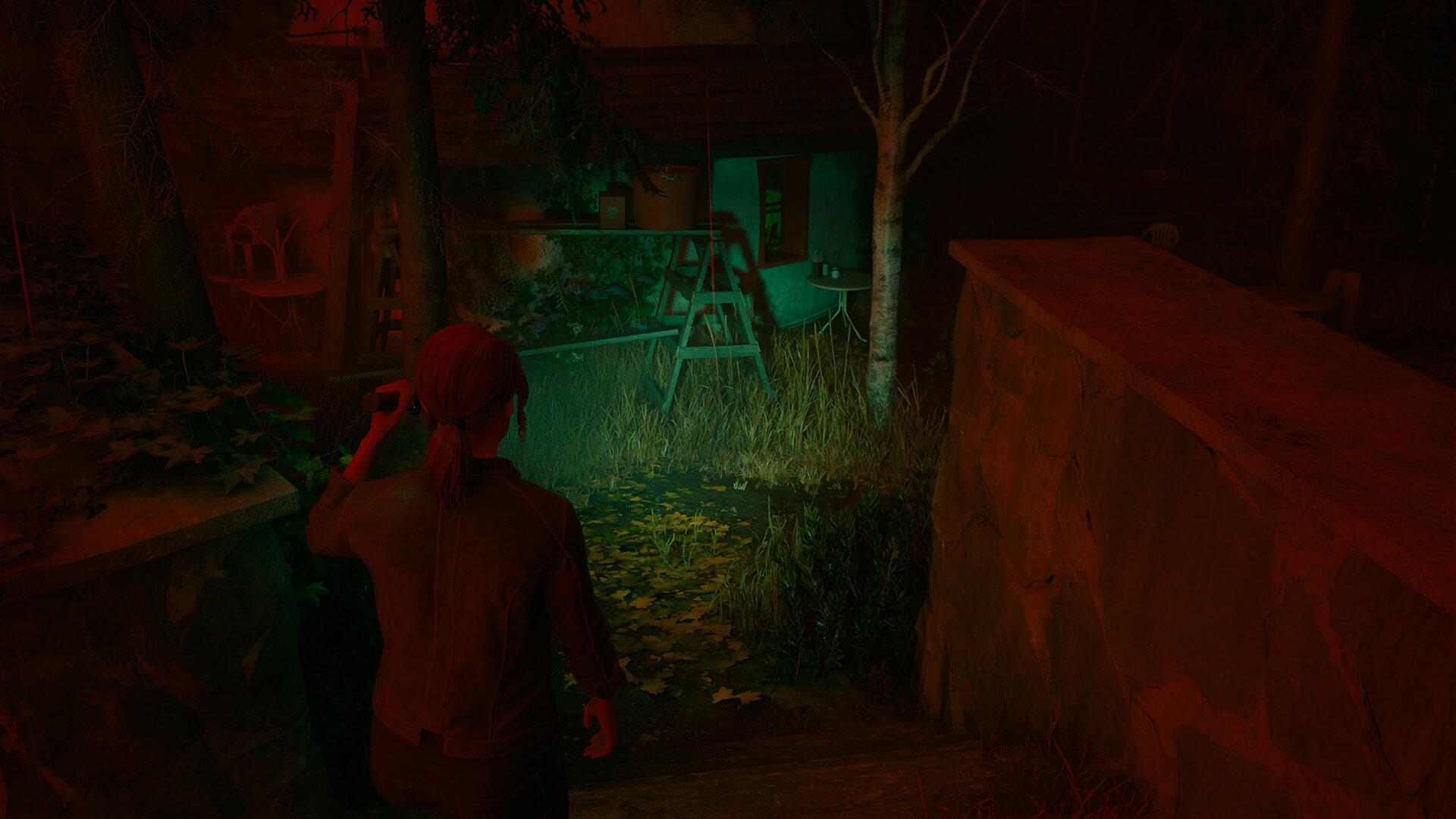
The same applies for Episode 2, North Star, where alternate universe Jesse Faden has to try saving her brother trapped somewhere in Coffee World. While missing her weird gun and psionic moveset, her trusty alien entity, Polaris, still remains. Since The Taken have taken over, she's required to use Alan Wake & Saga Anderson’s flashlight/gun combo to progress. Of the three vignettes, this one most closely resembles the standard Alan Wake II formula: some bouts against Taken enemies mixed with light puzzle-solving to act as a breather.
The one disparity comes in the form of a short, tacked-on stealth section. Conceptually, it's a nice idea and an interesting way to contrast how vulnerable this Jesse is compared to the version we're accustomed to playing; there's even a good comedic visual gag with the enemies you're trying to avoid. But the mechanics are little more than avoiding their line of sight with a fuzzy logic for detection and potentially hiding within this confined space. The process is simpler to accept death and restart from the last checkpoint. A bitter aftertaste to an otherwise serviceable cup of coffee.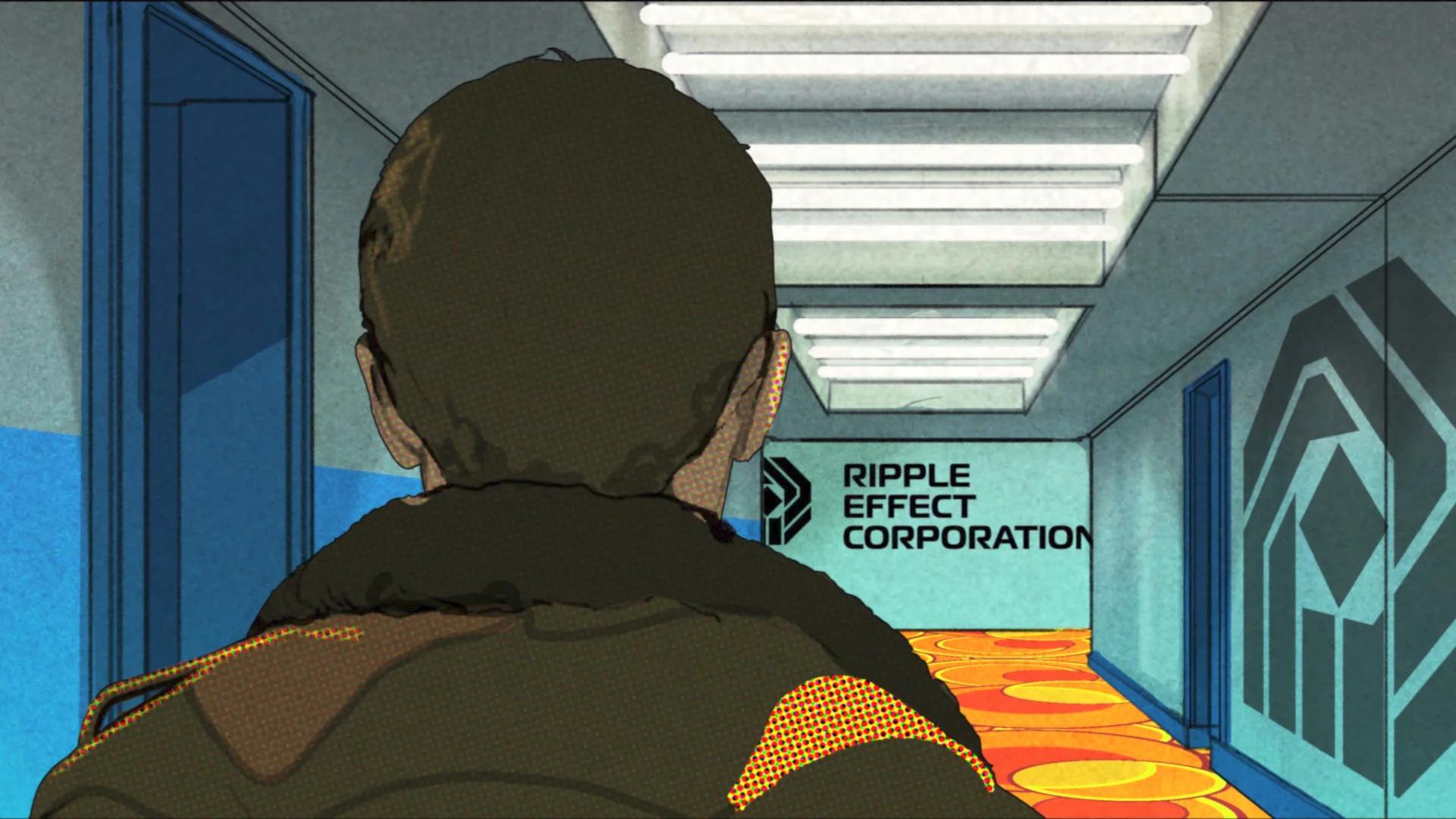
To make up for a more expected Night Springs episode, Sam Lake & co. decide to finish the third episode, Time Breaker, with a treasure trove of absurdity. Enter The Actor, who bears a striking resemblance to Sherriff Tim Breaker and also Jack Joyce – though the less said the better since Microsoft owns the Quantum Break IP. What begins as Shawn Ashmore, The Actor, workshopping his not-so-subtle role as a "multiversal agent" in a video game with Director Sam Lake becomes… well… him literally assuming that role within this reality. A grisly murder forces him to hop to parallel universes in order to defeat the Master of the Many Worlds.
While I'm trying to withhold juicier spoilers as best as possible, it's every bit as zany as you'd come to expect at this point. You're essentially a transient portal hopper trying to kill a godlike figure who's slaughtering different versions of Shawn Ashmore in parallel universes. No, I'm not making that up. Along the way, Time Breaker will flout conventionality in both its visual style and even game genre to reach its intriguing conclusion. So as to avoid spilling any more details, a large reason why Remedy's fictional multiverse works so well are those continual sparks of creativity whilst maintaining a coherent vision; that's why so many others – like Marvel or DC – quickly flounder from mismanagement.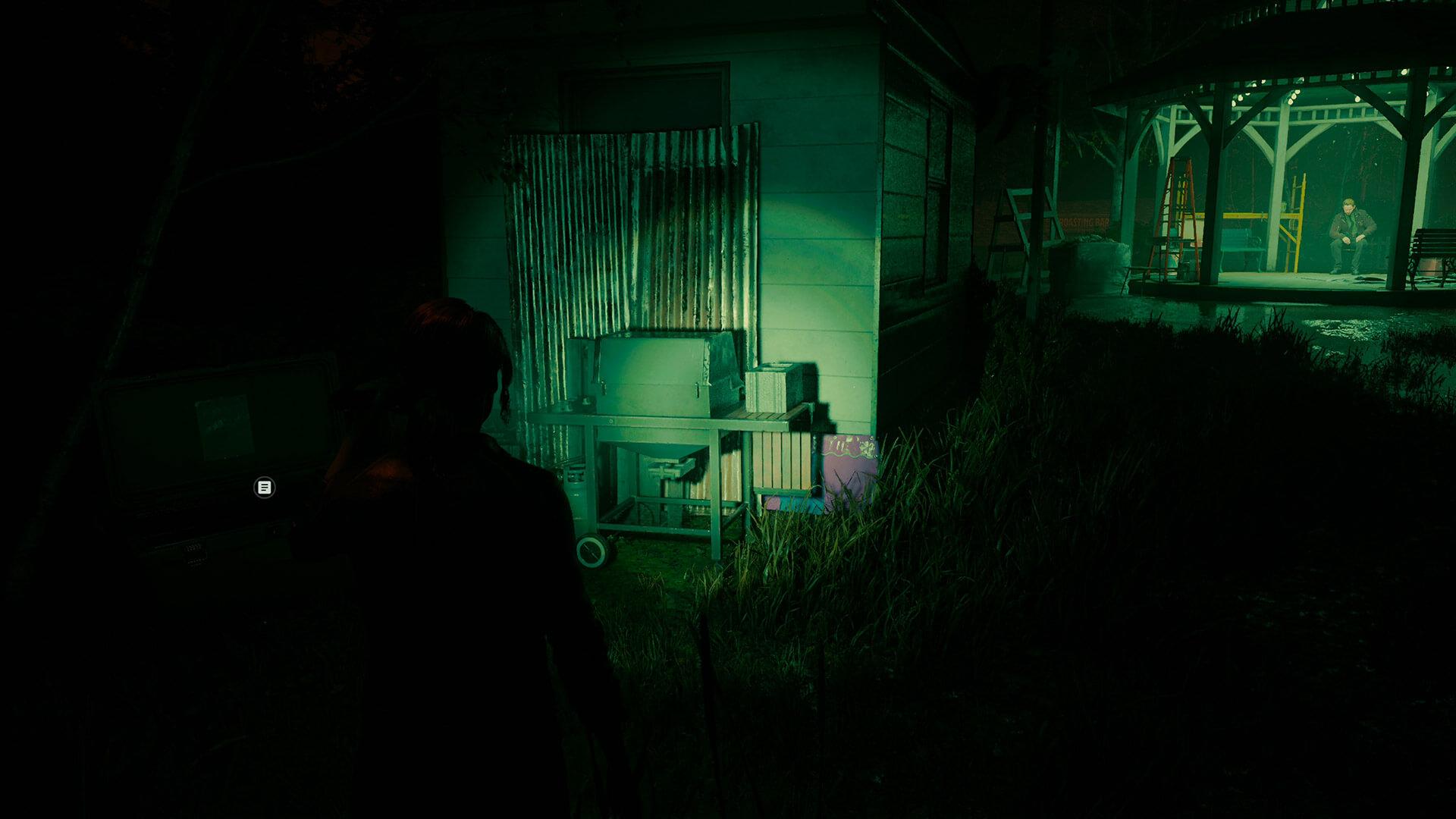
Despite the disparities in design approach and tone, there are a couple of aspects that unify these episodes. The best shared attribute is the hip-hop-flavored "Night Springs" theme song at each episode's conclusion. One critical gameplay tweak is the deemphasized outlook on survival-horror. Expect to have an excess of supplies by the end of each episode; hell, there's no use scouring through crates after the first 15 minutes. It makes the most sense for Number One Fan, given the absurdly cheery tone from Rose and the surrounding world, but the other two could've benefitted from stronger resource management. Although the shooting mechanics still remain punchy and polished, sticking to that with a profusion of extra ammo feels like a missed opportunity.
Perhaps balancing resources doesn't quite translate well when these vignettes are so short to begin with. Given the obviously limited budget for these expansions (compared to modern AAA developers), Remedy had this thought process: creativity over longevity. It's easy to complete this in roughly two hours; in exchange for these bite-sized chapters, you get some of the most entertaining tidbits – be it dialogue, game genre changeups, etc. – in Remedy's oeuvre to date. The countervailing reaction to such praise is still wishing for a more substantial main course.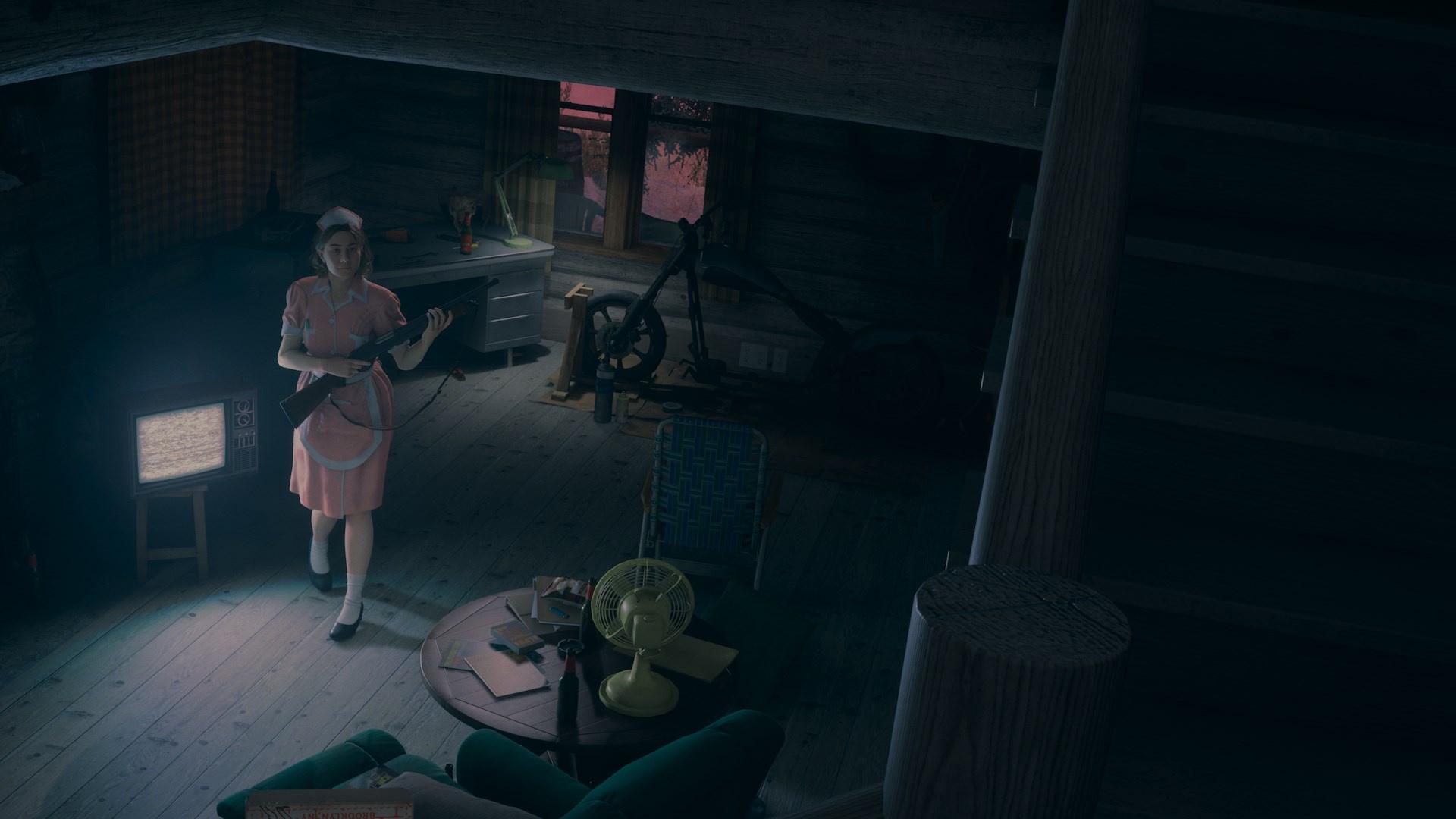
That critique is bolstered by the irritating demand to purchase the Deluxe Upgrade ($20) or Alan Wake II Deluxe Edition ($80) in order to unlock it. Yes, there's currently no option to purchase Night Springs by itself (which would likely cost $10). While it's true the second & final expansion of the Deluxe Upgrade, The Lake House, is already scheduled for October, there's no reason to put this inordinate upfront demand on the consumer. Season passes have existed for a while, but I've never seen them treated as the only option before this.
A humble expansion showcasing a developer's unique style is flanked on two sides. To its left, the unnecessary publisher meddling of having to pay the upfront cost of a Deluxe Upgrade; to its right, a wave of new expansions to some of the most popular titles. What modest DLC could hope to argue its value against those gargantuan competitors? Like most things in life, it's about perspective. For despite its limits in total runtime, this adventure into a world of shadow and substance, of things and ideas, is stuffed with loony what-if scenarios that excite one's imagination. If accepting the tradeoff of creativity over longevity then pay the toll and cross into... Night Springs.
Contractor by trade and writer by hobby, Lee's obnoxious criticisms have found a way to be featured across several gaming sites: N4G, VGChartz, Gaming Nexus, DarkStation, and TechRaptor! He started gaming in the mid-90s and has had the privilege in playing many games across a plethora of platforms. Reader warning: each click given to his articles only helps to inflate his Texas-sized ego. Proceed with caution.









